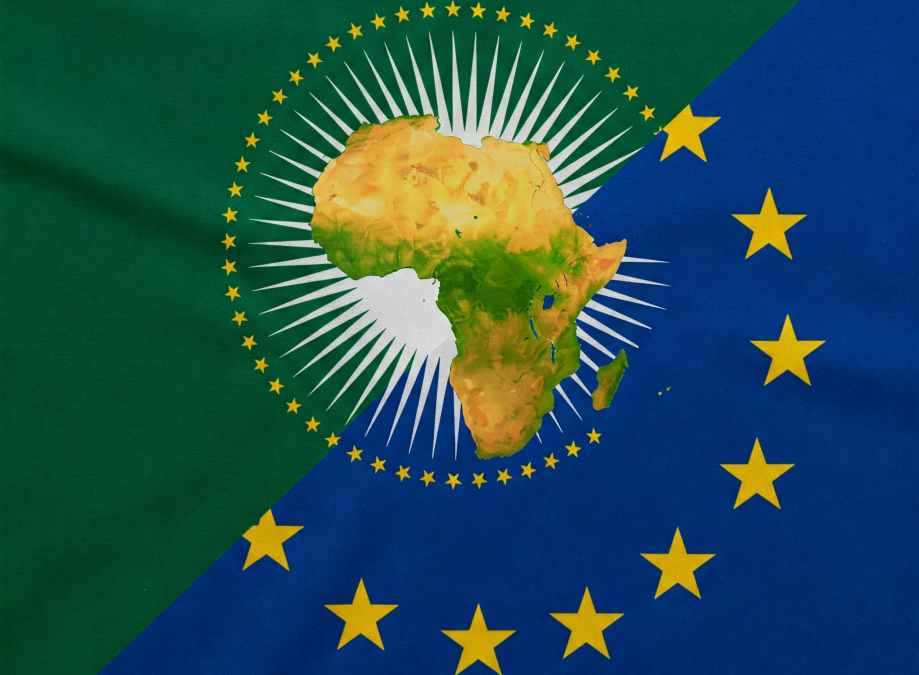Alorh’s eye on the Motherland
Bridging Continents: Africa and Europe in the Era of Strategic Partnerships


By Mary Alorh
The intricate bond between Africa and Europe stretches back centuries, with the Mediterranean Sea acting as both a natural bridge and a cultural crossroads connecting southern Europe to northern Africa. Today, this historic relationship is evolving into a modern geopolitical and economic battleground, shaped by shifting global dynamics, trade wars, and competing development agendas.
As the European Union (EU) grapples with the implications of the Global Trump Tariff (GTT) and intensifying competition from China, it must act decisively to mobilize resources and advance its Global Gateway initiative – a cornerstone of its strategy to counter Chinese influence in developing nations, particularly across Africa. With China leveraging tariff-free agreements with numerous African states, Beijing has cemented its competitive edge, deepening its foothold on the continent.
The EU now faces an urgent imperative to reclaim its relevance and strengthen ties with Africa through strategic investments and partnerships.
Unlocking the Potential of the Global Gateway
At the heart of the EU’s response lies the €300 billion (US$329 billion) Global Gateway initiative, with €150 billion (US$164.5 billion) earmarked specifically for Africa. To unlock the full potential of these funds, EU member states must unite under a shared vision.
This requires not only financial commitment but also strong political will to catalyze private-sector-driven growth across key sectors such as technology, trade, infrastructure, and green energy. By targeting investments strategically within the Global Gateway framework, the EU can ensure comprehensive and sustainable development that benefits both continents.
However, achieving this vision demands more than just capital – it calls for renewed focus and effort in EU-Africa cooperation. To level the playing field for European companies operating in Africa, EU institutions and member states must engage in meaningful dialogue to explore new opportunities, fortify existing partnerships, and cultivate a supportive environment for business expansion.
The legacy of colonialism, while complex, has laid a foundation for collaboration that the Global Gateway initiative can build upon, potentially smoothing its implementation and fostering trust among African nations.
Showcasing Success: Lessons from the Kaleo Solar Power Plant
One shining example of what effective collaboration looks like is the Kaleo Solar Power Plant (Phases I and II) in Ghana. Funded by the German Development Bank (KfW) at approximately €17.8 million (US$19.52 million) and installed by Spanish firm Elecnor S.A., this project highlights the tangible impact of the Global Gateway initiative.
It not only demonstrates how targeted investments can deliver real-world benefits but also serves as a powerful case study to promote similar ventures elsewhere on the continent.
Yet, for every success story, there are challenges to address. A critical hurdle for the EU is navigating the delicate balance between offering support and respecting the sovereignty of African states.
Prescriptive attitudes or conditionalities that dictate terms can undermine local autonomy and erode trust. Instead, the Global Gateway must position itself as a respectful avenue of choice – empowering African nations to make informed decisions without coercion or external dictation.
Genuine partnerships thrive on mutual respect and shared decision-making, principles that should guide all future engagements.
Learning from China’s Playbook
China’s Belt and Road Initiative (BRI) offers valuable lessons in this regard. Its success stems largely from presenting itself as a flexible partner, allowing countries to engage on their own terms.
This approach has resonated deeply with many African leaders, who value the autonomy it affords them. If the EU hopes to compete effectively, it must adopt a similarly inclusive mindset, prioritizing locally-led consultations and collaborations.
Africa’s needs are vast and varied, requiring solutions tailored to each region’s unique context. Local institutions must take the lead in shaping these partnerships, ensuring they reflect grassroots priorities and aspirations.
Such an approach not only enhances the likelihood of success but also fosters long-term sustainability and ownership of projects.
Toward a New Era of Cooperation
The EU’s ability to strengthen its ties with Africa hinges on its capacity to adapt and innovate. By channeling investments wisely, fostering genuine partnerships, and learning from competitors like China, the bloc can carve out a distinctive role in Africa’s development journey.
Effective communication and transparency will be vital, showcasing successes like the Kaleo Solar Power Plant to inspire confidence and demonstrate the tangible benefits of collaboration.
Ultimately, the EU’s engagement with Africa represents far more than a geopolitical contest – it is an opportunity to redefine the rules of global cooperation. By embracing inclusivity, respect, and shared prosperity, Europe and Africa can forge a future defined not by competition but by partnership.
Together, they can transform the Mediterranean’s ancient bridge into a modern pathway toward shared growth and resilience.
Mary Alorh is Director of Administration at DefSEC Analytics Africa Ltd., and is an expert in Gender, Youth, and Peace & Security initiatives in West Africa.

